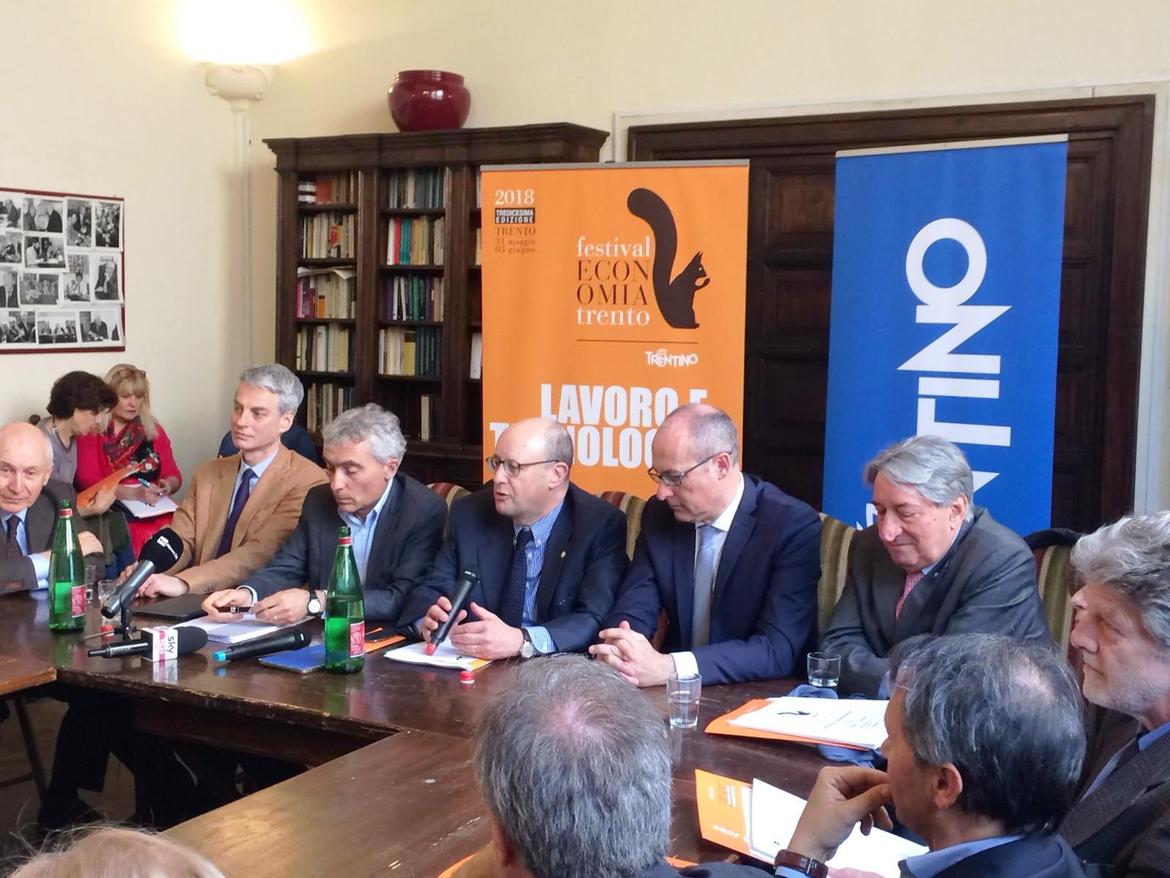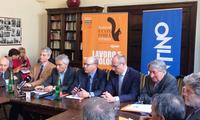
The Festival will kick off on the afternoon of Thursday 31 May, with a lecture entitled “robot mania” by Professor Richard Freeman from the University of Harvard, who together with Tito Boeri will begin discussion of the subject “Technology and Jobs”, starting from a provocative question: “What will be left for us to do when it is machines that are working and earning?”
On Friday 1 June Professor Joel Mokyr fromNorthwestern University will deal with the relationship between economic stagnation and technological progress, while Professor Barry Eichengreen from the University of California, Berkeley will investigate relations between populism and economic insecurity. The physicist Roberto Cingolani, Director of the Istituto Italiano di Tecnologia, will instead offer a fascinating interview with a robot. In the afternoon, the writer Evgeny Morozov will analyse the war between American and Chinese businesses to exploit new technology. On Friday there will also be appointments with Alan Kruger, fromPrinceton University, who will talk about the changes that technology has made to our way of working, and in the evening with the first Vice-President of the European Commission, Franciscus Timmermans.
On Saturday 2 June, Philip McCann from the University of Sheffield will deal with the impact of technological change on local economies. Imran Rasul from University College London will instead talk about justice and ethnic discrimination. Then it will be the turn of Federico Rampini, a familiar face at the Festival, who will present a lecture on Trump’s America, from Silicon Valley to the Rust Belt. The philosopher Remo Bodei will reflect on what happens to the conscience of individuals when essential human faculties such as intelligence and decision-making are transferred to machines. Mauro Calise, Andrea Gavosto and Gino Roncaglia will exchange ideas on how technology is changing education in schools and universities. The day will conclude with Diego Piacentini, who has been a member of Amazon’s executive team and will talk about the digitalisation of the Italian public administration.
On Sunday 3 June, Riccardo Zecchina, formerly Professor of Statistical Physics at the Politecnico in Turin and Bocconi University, will deal with the subject of Big Data, and it will then be the turn of the economist Luigi Zingales, who will talk about financial technology. Maurizio Ferraris will instead discuss the era of total mobilisation, in which the web and mobile phones cancel the distinction between leisure time and time dedicated to work. The day will conclude with Professor Michael Spence from the Fung Global Institute in Hong Kong, who together with Tito Boeri will try to sum up the long debate characterising the Festival.
Once again this year Tonia Mastrobuoni will take us on an exploration of the most interesting books on economics published in the last few months, discussing them together with the leading players in the Italian and international public debate. Those looking for further information on the burning issues in economic and political current affairs can follow the Spotlight sessions: on pensions, Alitalia and banking crises.
CinEconomy returns this year, given its popularity with the public in previous editions, supervised by Marco Onado and Andrea Landi: films linked to the Festival theme will be screened every evening at Cinema Modena. The forums supervised by lavoce.info have also been confirmed, along with the Keywords sessions, which this year are dedicated to productivity, artificial intelligence and big data.
The EconoMia competition, run with the collaboration of the Ministry of Education, Universities and Research (MIUR), the Association for European Economic Education, the Autonomous Province of Trento’s Department of Knowledge and the Istituto Tecnico Economico "Bodoni" in Parma, is also being held again. The twenty young winners of the competition will all be guests in Trento during the days of the Festival and will receive a prize of 200 euro each.
As usual, entry to all the events is open and free of charge until full capacity is reached. No booking is provided for. Access to the events scheduled at the Teatro Sociale is by voucher, distributed at ticket offices from two hours before the beginning of each event.
Trento Festival of Economics is promoted by the Autonomous Province of Trento, the Municipality of Trento and the University of Trento. Planned by the Laterza publishing house in collaboration with Superfestival - Salone Internazionale del Libro in Turin, with the support of ASI - Agenzia Spaziale Italiana.
Partners
Intesa Sanpaolo
Main sponsors
Hydro Dolomiti Energia
Media partners:
Rai Radio 1
Rai Radio 3
Sponsors:
Autostrada del Brennero
Exprivia - Italtel
EY
Ferrovie dello Stato Italiane
Fondazione MSD
Grant Thornton
Hit - Hub Innovazione Trentino
LeasePlan
Marangoni
Mastercard
Mezzacorona - Rotari
Press office
Tel. +39 0461 497930
Web site: https://2018.festivaleconomia.eu/
Twitter: https://twitter.com/economicsfest
Facebook: https://www.facebook.com/festivaleconomiatrento/
Instagram: https://www.instagram.com/festivaleconomia/








